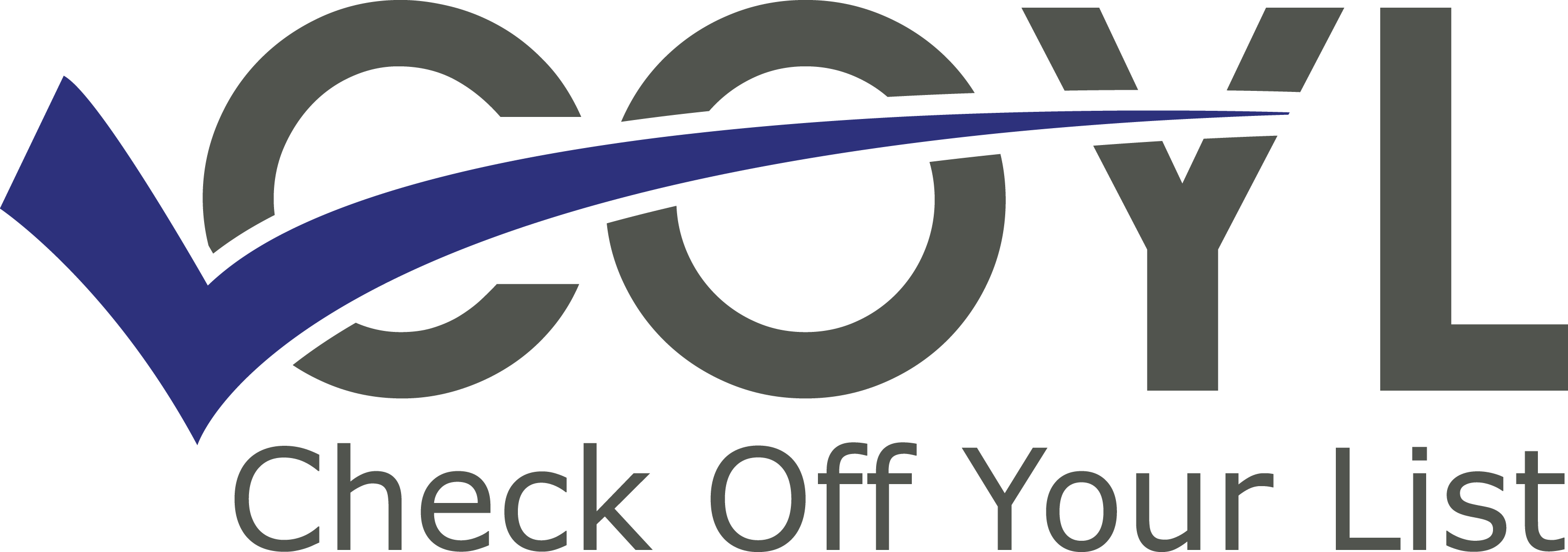Thank you for joining us for another episode of Checking Off Your List with me, Rachel Luther.
A question I frequently answer is, ‘What is a virtual assistant?” so let me start this episode by telling you that a virtual assistant provides back office support to your business from their remote office location. It seems simple, right, yet one of the amazing things I’ve discovered in the past ten years is that Virtual Assistants can completely revolutionize the way a business owner views and approaches their day to day in their business.
A Virtual Assistant is so much more than just an assistant. It’s kind of amazing, but a Virtual Assistant typically has expertise in at least one the following areas: Bookkeeping, Digital Marketing, Human Resources, Paralegal, Real Estate or Website Design.
As a business owner, I may enjoy one or maybe two of these tasks for my business … if I’m lucky. But I don’t think it’s a stretch to say that none of us started our businesses because we were just itching to do the marketing, bookkeeping, web design and HR stuff our businesses need to be successful. Enter: Virtual Assistants, and thanks to new technology and more and more companies—like Check Off Your List— entering the mix, Virtual Assistants are available and prepared to meet the diverse needs of businesses owners.
This hasn’t always been the case, and when I started Check off Your List, there were very few, if any, companies offering this service. It was so new, in fact, that I’d say the majority of my time was spent giving potential clients the definition I just gave you, along with convincing them that, in fact, we worked alongside their companies, just remotely and no. We are not showing up at your office to work; we work from our office. Obviously, this is much easier to explain in today’s virtual environment, 10 years later. Now, I frequently explain yes. Our team members are real people located in the United States. But back then, for many, remote work was a completely foreign concept, like trying to explain cloud storage to your parents. Yet, there is still confusion about how a remote working relationship can benefit a business and improve an entrepreneur’s quality of life. So I think it’s necessary today, for this episode, to clear up some common misconceptions about virtual assistants. I’m also going to outline the differences in types of Virtual Assistants. Yes! Shockingly, there are many types, so you need to find the best fit for you. The last thing I will do is take a general look at how VAs have evolved over time and where I see the market going. Oh yeah, VAs are what we on the inside call them, which means after listening to me for the next 15 minutes your going to be calling them that, too. So, grab a cup of coffee, snuggle into your favorite chair, and get ready to be cured of all your misconceptions about Virtual Assistants:
Let’s start with the common misconceptions:
- A VA is an employee – No, They are a contractor and function as their own company.
- A VA works in your office – No, A VA works for you remotely from their office.
- A VA is merely an assistant – No, A VA is an expert in their chosen field of expertise, meaning they should have training in bookkeeping, marketing, human resources, web design, or other skills. VAs should have degrees and certifications, making them experts in what they do.
Now that the misconceptions are out of the way, let’s talk about the difference between types of VAs, starting with: US Based VA firms
When you enlist the support of a Virtual Assistant firm, you tap into multiple United States based Virtual Assistants. This is opposed to a single Virtual Assistant or Virtual Assistants located overseas.
This can meet several of your business support needs by providing a team rather than the single expertise provided by an independent Virtual Assistant. Each Virtual Assistant at the firm has their own area of expertise, and you can pull from various areas of support to build a team that is custom built to meet the specific needs of your business.
You also don’t have to shop around for a reputable company for each one of these needs because you an entire team at your fingertips. And, even if your Virtual Assistant happens to be on vacation or sick, another Assistant is ready to step in and meet your company’s needs.
If you’re concerned about being just a number to your Virtual Assistant firm, this is not the case: your Virtual Assistant becomes personally invested in the success of your business. As your company grows and evolves, so does the relationship between your company and the Assistant so integral to that success. This happens more often than not
They truly join your team as you work together to reach your goals.
You also have an account manager who devotes their time to ensure your needs are met and you’re happy. A good Virtual Assistant firm is designed to ensure you experience the small business feel with the resources that come with a larger firm.
Then there are the Independent VAs
This is the Virtual Assistant in your community. No one questions the importance of doing business locally and boosting the local economy.
There is also the benefit that meeting your VA face to face will ease any fears you might have of beginning this new kind of work relationship.
I should also mention customer service: Working with an individual Virtual Assistant means stellar customer service from an Assistant with a small client load.
Eventually, you will outgrow your Virtual Assistant as your business grows. Or in some cases the individual virtual assistant may become too busy with other clients to meet your needs. Or Your needs may even exceed their expertise, or they may be sick or on vacation when your business needs them most.
To compensate for any of these obstacles, you might find that you work with multiple companies or Virtual Assistants to meet your business needs. This brings additional revenue to a variety of local businesses, but of course you will have the work of maintaining each of those working relationships.
Ultimately, the personal touch that comes with a local entrepreneur or the peace of mind that comes from having coffee with your VA is what local business is about.
Now lastly, I’ll discuss Overseas VAs
This is going to be your cheapest option. The overseas Virtual Assistant company utilizes professionals based in various countries around the world and can provide services to US businesses at a lower cost. This allows your business to have a Virtual Assistant even if you’re on a tight budget.
The secondary benefit of an overseas Virtual Assistant is that they often offers24 hours support, so they can work when you need them no matter the time of day.
This sounds great, although there are some drawbacks. With Assistants speaking different languages from around the world, you will experience some communication barriers as instructions and specific needs can sometimes be lost in translation.
This just requires more vigilant communication from you in order to get the final product or support you expect. An example would be requests for edits and additional revisions of work.
So, If communication is your strength and budget is a concern, an overseas Virtual Assistant is probably the best option for you and your business.
However, when you invest enough in your business to employ a US based Virtual Assistant, time and effort you might be devoting– or that you previously devoted –to communications correcting the output of overseas VAs, could be spent on the mental energy developing creative solutions for your business needs.
These remote solutions are going to become a necessity in business, especially with most businesses moving away from traditional models of operation. Covid is, to an extent, forcing companies to adopt these changes—and in many cases it has become abundantly clear that it’s evolve or perish. One undeniable feature of this change is that more and more positions are being fulfilled by remote employees. It’s important that businesses make these changes a feature and not a bug of their growth and evolution by making the best, most informed choices.
Certainly, the Virtual Assistant industry has improved companies’ abilities to do business in the time of Covid, but the truth is that business has been booming for at least the last decade. FlexJobs and Global Workplace Analytics found that remote work trends increased 159% from 2005 to 2019. And we all know there’s been another significant increase in telecommuting during 2020. This has been due to Covid, but many businesses are reconsidering their plans to return to their office buildings. In the early days, businesses offering Virtual Assistance spent a good amount of time simply educating customers about the ins and outs of a remote work relationship. Now, people are actively seeking VAs, and developing technology has made working with a remote team seamless. It is inevitable that more and more companies will capitalize on the many rewards of remote work.
I remember when I first began to reap these rewards myself. I mean the rewards of getting help from someone outside my immediate circle. It was when I hired my first employee. I have to admit, the prospect of bringing someone else into the fold was excruciatingly stressful. I think I spent more time stressing about someone else doing the work than it would have taken me to just do it myself, and I will get into the struggles of transitioning to a team of you plus one in a later episode. But I definitely had trouble letting go of the reins—I mean, this was my company, and so far it’d just been me, but now I had to entrust another person to treat it as I would.
That being said, I can vividly remember how I felt when I realized things were getting done in my business, and I WASN’T WORKING—it was incredible. I loved how empowering that was. The growth in my business seemed limitless as I shot off an e-mail and things were ‘magically’ accomplished. Obviously, it wasn’t magic, but it was magical to me. Outsourcing eliminated the constraints I felt from the many things I had pulling me in various directions.
I specifically remember on more than one occasion telling my husband, Colin, how excited I was that things were getting done when I wasn’t working. It seemed like such a small victory, but in truth the freedom I felt when I let go of things, is what spurred Check Off Your List into becoming the business it is today. The moral of the story: Yes, at first it’s difficult to let go, but once you’re ready, a whole new world opens up, a world with endless possibilities. For me, now that I’ve conquered that fear of letting go, I actively try to get most things off my plate to focus on other things that truly matter.
Now that you know are ‘in the know’ about Virtual Assistants, you need to figure out what it looks like for you to step outside your comfort zone and add to your team. Whether you choose a US based VA firm, an independent VA, or a VA located overseas, the next inevitable question is “Now that I have help, what do I have them do?” In the next episode, I explore hiring my first employee, walk through figuring out what to outsource, and share a few things I wish I’d done differently. Subscribe, so you don’t miss an episode, and be sure to find us on Instagram as Rachel Luther and on Facebook as Checking Off Your List with Rachel Luther.





